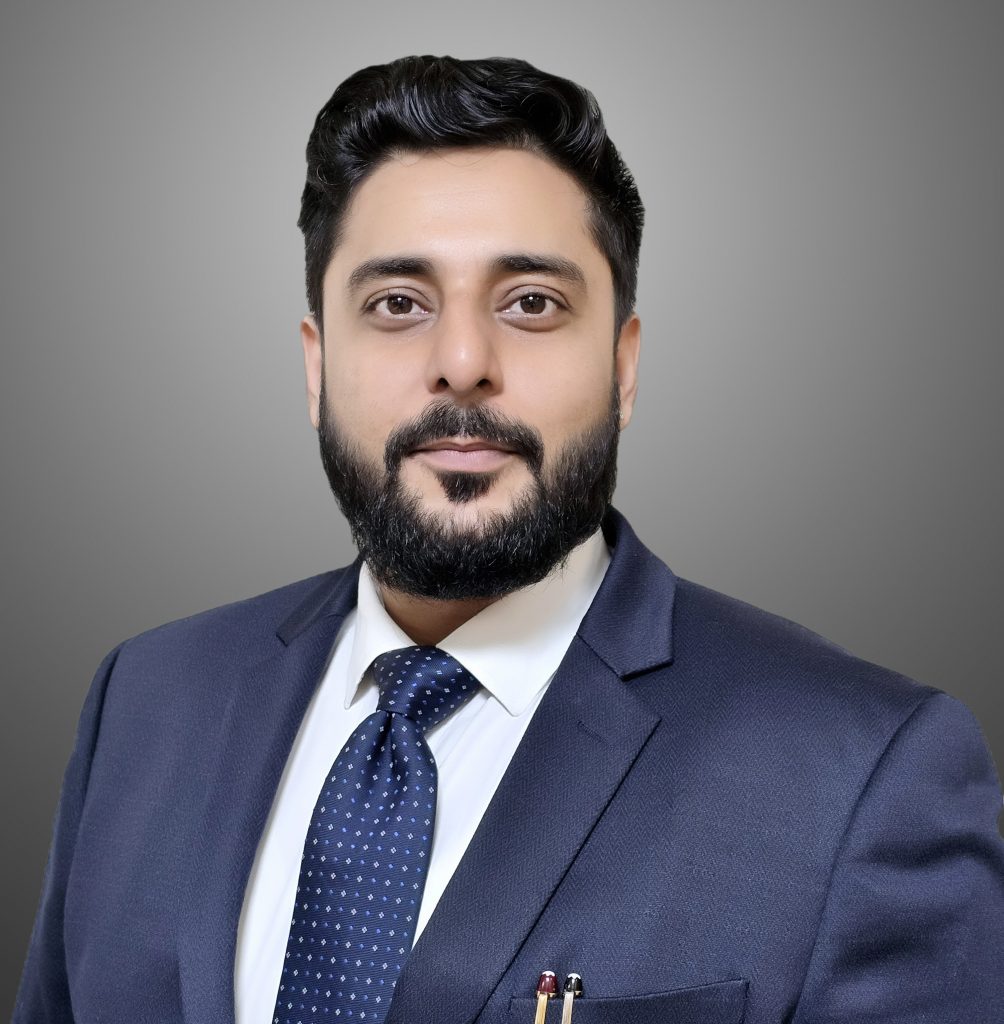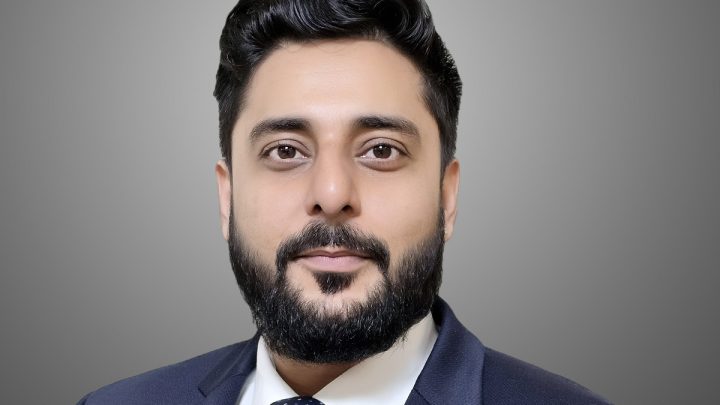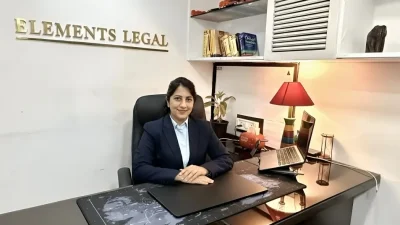Interviews
2744
0
0
“The role of lawyers has expanded considerably to not just advise on law but to advise companies on business transactions and to protect the business interests.” – Lokesh Malik, Advocate at Supreme Court of India.
This interview was taken by SuperLawyer Team
Posted on June 04, 2025
This interview has been published by Anshi Mudgal and The SuperLawyer Team

You have a demonstrated history in corporate commercial litigation, particularly in insolvency laws, arbitration, and commercial disputes. What initially inspired you to pursue a career in law, and what drew you specifically to these areas of practice as a lawyer?
Once I started with law school, regular brainstorming sessions in a group was something which I got inclined to, and it always helped me in achieving appropriate results subject to the long enjoyable hours of work and preparations.
Initially, the idea of law school was to begin a law firm journey on the corporate side but as fate decided, I always ended up with internships with litigation teams.
As destiny worked, I commenced my career with a litigation chamber where I worked upon and assisted the seniors in matters pertaining to different facets of law. However, arbitrations and insolvency always got my interest. Till today, my workload primarily focuses on insolvency and arbitrations but has over the time also expanded to regulatory, civil and criminal laws as well.
The early years in the legal profession can be particularly demanding. When you began your career, what were some of the initial challenges you faced, and what insights did you gain from overcoming them?
I believe that litigating lawyers are on probation till the time they are litigating lawyers owing to the level of uncertainty. ??? This needs a better explanation.
The most common challenges which every new lawyer faces (specially those like me who do not come from a legal background) is in getting appropriate answers to “what” and “why” of the legal profession and the answers to the said questions vary from lawyer to lawyer which often creates further dilemma upon discussions with the fellow lawyers. This dilemma is resolved differently by every person in their own way as there are no set formulae or a defined path to go forward in this profession. Every lawyer has his own storyline.
Despite having a positive outlook to life, I would admit that the initial years of my practice were tough in terms of coping up with the pressure, getting overwhelmed before every hearing even when I was not appearing before the court and only assisting and especially looking at my colleagues who, as per my understanding, were doing better etc.
However, I was lucky to have the support of a few great friends and mentors who guided me smoothly through all the difficult paths and further helped me in shaping my career as well as understanding the perspective of law.
I would say that till today, the struggle of a litigating lawyer continues which is perpetual. Every day is a new learning curve, a new challenge, a new perspective to the fact situation. However, I am in a better place professionally continuing with the thought that there is no short cut to achieving your goals but hard work, sincerity and dedication to the profession along with working smartly (given the latest AI tools and technology at one’s disposal) helps you grow in the legal profession.
How are construction arbitration matters typically approached in your experience, particularly those you’ve handled independently? If you could share the key challenges you faced and how you addressed them?
Construction Arbitrations specifically in India as compared to other jurisdictions are an assortment full of contentious points like price escalation, variation in quality/quantity or both, technical hindrances, delay etc. The said matters being highly technical in nature require a streamlined approach with a proper understanding of the tenders and its clauses. The key challenges which are usually faced during such proceedings are dependent upon how diligent the party being represented was during the tender/contract implementation stage as maintenance of proper records and communications plays a very important role in the outcome. Furthermore, high-stake construction arbitrations, specially where cross border parties are involved, require specific experts for delay analysis, claim preparation which are over and above the expertise of most of the lawyers. For instance, delay analysis can be done by an expert in several ways basing on the agreement between the parties which would include but is not limited to – As Planned vs As Built method, Time Impact Analysis, Window Analysis etc.
You’ve been involved in several landmark judgments under the Insolvency and Bankruptcy Code. What was it like to be part of such high-stakes litigation, and how did you prepare both legally and strategically for these cases?
Every case, especially which concerns the Insolvency regime is a high-profile case these days as it is an infant law as compared to other laws and is evolving day by day mostly by way of precedents. The fate of the company is largely dependent on the successful resolution. While working on a high-stake matter, either independently or while being associated with an office, the simple approach which I have always relied upon is firstly know your facts and file. Knowing facts clearly and being able to reproduce/argue them concisely is something which gives your case a clarity. Once there is clarity to the facts of the case, the law is applied “skilfully”.
In representing real estate, trading and textile companies under the IBC, what common legal and operational hurdles have you observed? Based on your experience, what proactive measures can these companies take to better navigate insolvency proceedings?
While dealing with such matters, the common issues which arise are always lack of contemporaneous communication to safeguard the interests of the party we represent. Owing to lack of such communications and proper compliances, several sound companies suffer. Timely and sound legal advice during the regular day to day functioning of the company also plays a crucial role. The role of lawyers has expanded considerably to not just advise on law but to advise companies on business transactions and to protect the business interests.
Leading a team of associates alongside an Equity Partner in complex arbitration and insolvency matters can be quite demanding. How do you approach team management and foster a collaborative working environment that ensures efficiency and high-quality outcomes? Additionally, what key qualities or skills do you value most in your team members?
Once a lawyer reaches at one point in his or her career, delegation and sharing of work load with the team becomes essential. To have a streamlined and disciplined working environment having proper quality standards while meeting stringent deadlines, it is mandatory that the responsibilities are shared equally and delegated amongst the team which eventually also creates a sense of responsibility towards the assignment.
The first and foremost skill we look for in a candidate joining our team is an ability to take decisions and take up responsibilities individually. Secondly, is the zeal to take up litigation and work around the “not talked about” adversities of the profession. A team grows when a member of the team grows individually and eventually when the set backs are approached collectively with a positive mind set with an enthusiasm to keep moving ahead.
When representing prominent real estate developers before arbitral tribunals and High Courts, what key strategic considerations shape your approach? Additionally, are there any resources that you regularly rely on and would recommend to others in the field?
The disputes which real estate developers and their promoters are privy to are diverse in nature which would include applicability of criminal laws, insolvency laws in certain cases, RERA compliances etc. The main strategic approach to deal with such matters at hand requires a lawyer to deal with all the cases at priority and with due efficiency as on one pretext or the other, the said cases will be linked or will be dependent on each other either on facts, law or the way proceedings are conducted.
A proper way to deal with such cases where there is multiplicity of litigation, it is advised to have a brief background of each case so that nothing inconsistent is submitted. Particularly, for matters concerning real estate industry, EPC Contracts etc, commentaries like Building and Engineering Contact by PC Markanda and others can be used apart from usual research tools such as SCC Online, Manupatra etc..
With your wide-ranging experience in litigation and corporate commercial litigation, what advice would you offer to law students or early-career lawyers aspiring to succeed in this profession, especially those looking to build careers in corporate litigation? Are there any resources, habits, or mindsets that you consider essential in today’s legal landscape?
There is no hard and fast rule for pursuing the professional per se, however, some changes in the daily execution may prove to be beneficial. Every other lawyer, may it be a senior or a beginner in the profession, develops their own way of drafting, arguing etc however, being connected to the fellow lawyers, knowing all the amendments, new precedents always acts as a stepping stone and a boost to the knowledge. Furthermore, build trust and rapport with the mentors, team and colleagues which eventually will be a big part in the long-standing journey. It is very important to build a solid foundation to understand the proceedings, laws and procedures.
It is helpful if you assess at an early stage that if you’re passionate about litigation and towards pursuing it further and if yes, then be patient while continuously evaluating yourself qua the performance.
A story of success is always backed by a story of failure and trials.
Given your demanding professional commitments and deep involvement in high-profile cases, how do you maintain balance between your personal and professional life? Are there any core principles or philosophies that guide you in both spheres?
Being a lawyer always comes along with its own set of challenges such as long working hours. There is no shortcut to it as it is a service industry which is very dynamic and ever evolving and whereby everything is based on the efficiency and quality of the service provided.
The work life balance and the outlook one looks at differs from person to person, however certain habits which should be taken up early in the profession are that one should be able to set boundaries between work and personal life while setting deadlines. Time management and efficient organisation ensuring the allocation of work and time are important. Lastly, flexibility is the key for successful implementation of the above two points as it helps a person to adapt and adjust the schedule as and when required.
Get in touch with Lokesh Malik –







No comments yet
Be the first to share your thoughts about this interview.